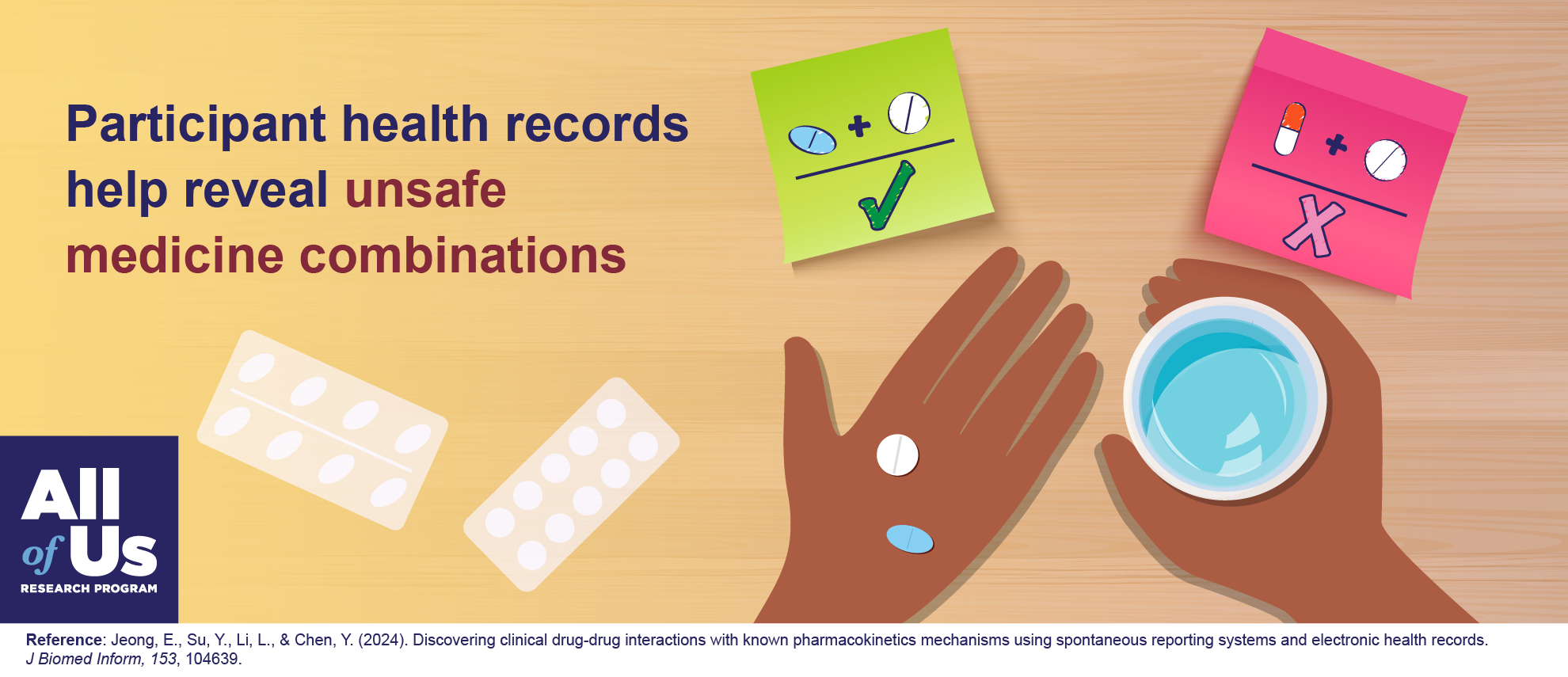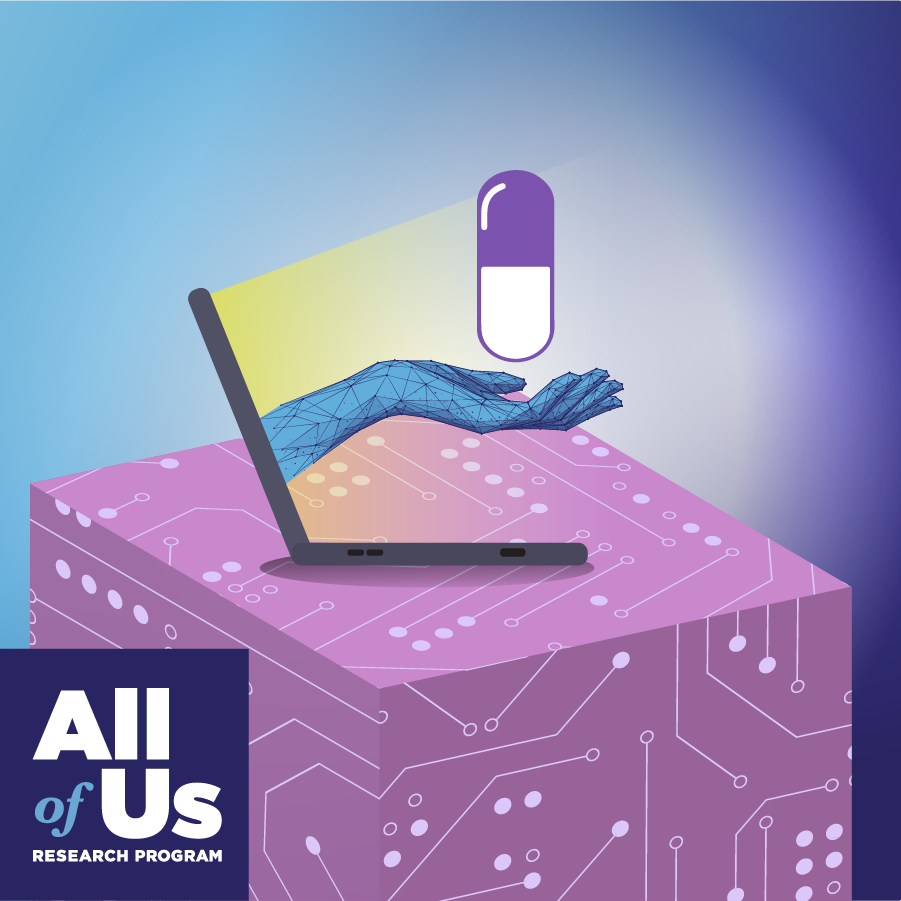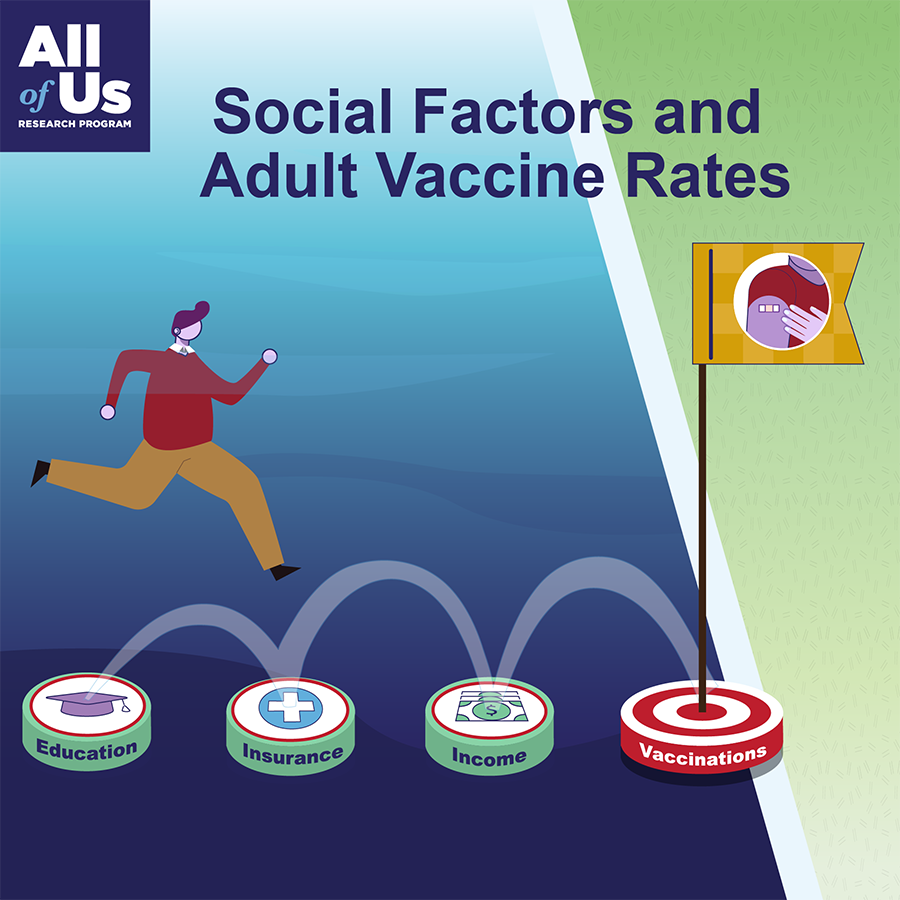
Key Points
- Sometimes one medicine affects how another medicine works. Taking both may cause a health problem.
- Researchers searched public reports to find medicines that may be unsafe to take together.
- All of Us data helped confirm that five pairs of medicines may be linked to life-threatening health conditions.
- However, these are research results and should not be used to make medical decisions. More research is needed to check these findings.
In Short
Sometimes taking two medicines at the same time can cause health problems. For example, you may know that you can’t take aspirin if you’re already taking a blood-thinning medicine (such as warfarin). Together, they can lead to serious bleeding problems.
There are so many medicines out there. We do not know all of the safe and unsafe combinations.
Researchers looked at data from All of Us and another large health database to see whether they could find any unsafe combinations that we did not know about before. They found five pairs of medicines that may cause major health problems when taken together.
The findings are published in the Journal of Biomedical Informatics.*
Searching for Unsafe Combinations
Almost half of the people in the United States take prescription medicine. Many take more than one. But some medicines can affect how other medicines work in the body. These effects are known as drug interactions. Taking two medicines that interact can cause health problems. So, it is important to know which medicines affect each other and the health problems that may result.
To look into this, researchers started by searching reports of health effects from medicines. They looked for times when two medicines taken together seemed to cause a health problem. The search found dozens of pairs of medicines that were linked to serious health conditions.
The researchers wanted to double-check the results. They turned to electronic health record (EHR) data from All of Us and Vanderbilt University Medical Center (VUMC). This included information from nearly 250,000 All of Us participants.
EHRs contain information about the medicines that people take and the health conditions that they have. The researchers found participants who took two medicines together and participants who took only one of them. Then the researchers checked to see whether the participants who took both were more likely to have health problems than those who took just one.
Five of the medicine pairs were linked to life-threatening health problems when taken together. For example, one pair was a drug called tacrolimus, which is used after an organ transplant, and an HIV drug called ritonavir. Participants who took both medicines were more likely to have serious kidney problems than participants who took just one.
Researchers now have a new way to look into medicine safety, because so many participants shared their EHRs. With further study, these findings may change how doctors choose which medicines to give.
Research for Safer Medicine
Uncovering these harmful medicine combinations is great news. But the work is not done. This study did not look at medicines you can get without a prescription. Plus, other factors—such as genetics, other health conditions, and lifestyle choices such as tobacco use—may affect how our bodies react to medicines. Future studies with more participant data could consider these details.
It is important to remember that these are research results and should not be used to make decisions about your own medical care. If you have questions about your medicines, talk to your health care provider before making any changes.
*Updates to align this publication with All of Us Research Program policies are pending. All of Us will add a link to the updated publication once it becomes available.
Interested in All of Us?
- Read more research highlights.
- Learn about participation in the program.
Conduct research with All of Us
- Learn about opportunities for researchers.
- Find funding to support research using All of Us data.
- See more research projects made possible by All of Us data and tools.


